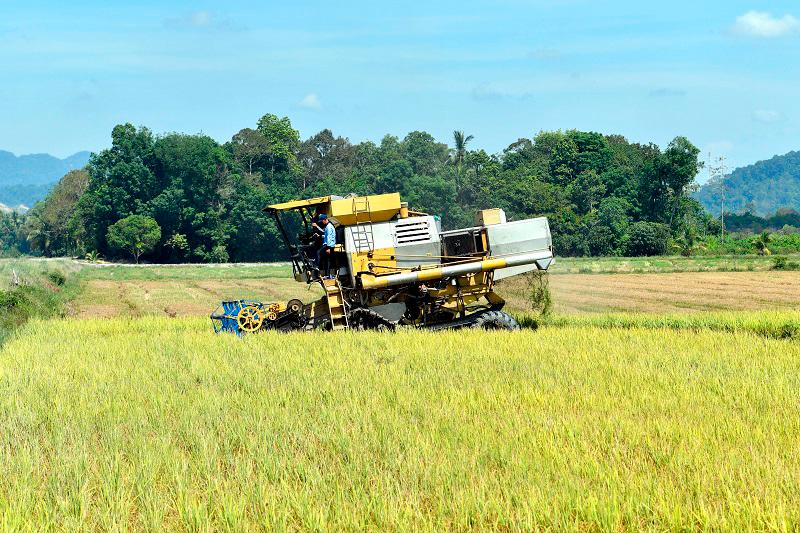PUTRAJAYA: The ceiling price recommended for cost of labour involving ploughing and harvesting paddy, which takes into account the current diesel price, will come into effect tomorrow, according to the Ministry of Agriculture and Food Security (KPKM).
In a statement today, KPKM said the ceiling wage recomended per slot (0.7 acre) for the process of harvesting paddy fields in Kedah and Perlis is set at RM180; RM120 for ploughing in the first season and RM110 each for wages in the second and third seasons.
For Kelantan and Terengganu, the ceiling wage per acre for harvesting is RM13 for each sack of rice, while the ploughing wage for the first season is set at RM170; RM140 (second season) and RM130 for the third season.
According to KPKM, for private entrepreneurs in Selangor and Perak, the ceiling wage/cost per hectare for harvesting is RM100 per metric tonne; RM200 for ploughing in the first season and RM180 each for the second and third seasons.
“The fixed cost has taken into account the current diesel price and it is a guideline for rice industry players, especially in Peninsular Malaysia.
“Commitment and cooperation of industry players is important to ensure the registration process of all ploughing and harvesting machinery can be implemented promptly,” according to the KPKM statement.
The ministry said that the ceiling wage amount is one of two KPKM recommendations as an intervention measure to deal with the increase in machinery operating cost and wage cost in the chain of rice cultivation.
“KPKM recommends two proposed intervention measures to deal with this issue, namely through the latest ceiling wage price table that has taken into account the current diesel price as well as long-term intervention measures through the implementation of the registration of ploughing and harvest machinery, for study and research of appropriate targeted assistance programmes,” said KPKM.
The recommendation was reached through an engagement session between the ministry and service providers for mechanised ploughing and harvesting held today, aimed at getting market feedback on wage costs that are more relevant and do not burden rice farmers.
“This engagement session was held following the government’s recent implementation of diesel price floatation,” according to the statement.
On May 31, the government announced the floatation of diesel fuel price following the targeting of diesel subsidies as one of the mechanisms to eradicate leakage involving fuel subsidies which are said to be more prevalent recently.
The government had earlier introduced ‘Budi MADANI’ to ensure that subsidy allocations are targeted at eligible groups which are divided into individual assistance (Budi Individu), farmers and small commodity farmers (Budi Agri-Komoditi) and public vehicles and transport of selected goods (Budi MySubsidi Diesel).









